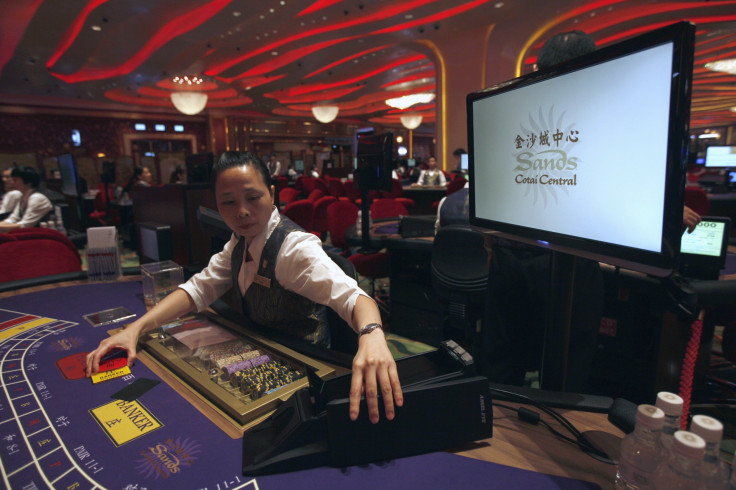Macau’s Economy Contracted By 20 Percent In 2015 As Its Casinos Suffered

Macau’s economy contracted 20.3 percent in 2015, Bloomberg reported, amid a crackdown by the Chinese government on graft that has helped shrink casino revenues and driven high rollers away from the former Portuguese colony.
Macau’s economy contracted 14.4 percent in the second quarter and 24.2 percent in the third quarter of 2015. The special administrative region has struggled since June 2014 to attract the high rollers who once flocked there. In February 2015, its casino revenue fell by nearly half, to $2.4 billion, from $4.8 billion the previous February.
Much of the clientele at Macau’s high-end casinos were once wealthy and connected with China’s ruling Communist Party and state-owned enterprises. Those placing big bets generated a whopping 70 percent of the revenue for the city. But with the anti-corruption campaign launched by Chinese President Xi Jinping after he came to power in late 2012, these gamblers headed elsewhere — to the Philippines, Singapore and even South Korea — to escape official scrutiny, Bloomberg said.
As gambling revenues have fallen, Macau in turn has sought to bill itself as a top destination for other activities and attractions, like the world’s largest wave pool and other tourism-based, family-friendly venues.
Those rebranding efforts have yet to pay off although some signs indicate Macau’s gambling slowdown may have finally hit rock bottom. Tourists from mainland China during the recent Lunar New Year helped ease losses, bringing the drop in profits during the month of February to the smallest level — $2.4 billion — in more than 18 months.
Analysts surveyed by Bloomberg have predicted VIP gambling will make a comeback in 2017, but for 2016, revenue from high rollers would fall by an estimated 13 percent. Growing gambling revenues from the mass market would be insufficient to offset those losses in 2016, they indicated.
© Copyright IBTimes 2024. All rights reserved.












